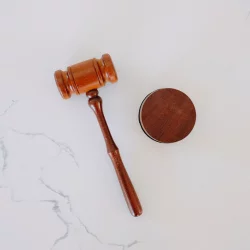What is Likely to Happen When You Get a DUI? Let's Find Out Now!
Driving under the influence or DUI can lead to fines, jail time, and other severe penalties. What you may not know, however, is that getting a DUI can be a gateway offense that could lead to far worse things down the road. If you're under arrest for driving under the influence and pleading guilty, here's what happens when you get a DUI.
1. You Will Likely Face Criminal Charges
You should know that DUIs charges are almost always a criminal offense, not a traffic infraction. That means you could end up in jail and with a criminal record, jeopardizing your future ability to get specific jobs. Criminal offenses under DUI laws are serious—so it's essential to understand what happens when you get a DUI to make sure things don't escalate too far.
When you face charges for driving under the influence, the most crucial thing is to seek legal help from a professional and reliable DUI lawyer immediately to help you navigate your case confidently. An experienced attorney will be able to help you fight your charges and protect your rights throughout every step of the process.
2. You Might Lose Your License
In most states, you might lose your driver's license because of driving under alcohol or drugs. It can have serious consequences—not only will it be challenging to get to work or drive kids around, but losing your license can mean losing access to a lot of other services and resources (like public transportation).
In addition, if you were driving without a valid license or permit at the time of arrest, your state DMV may impose further penalties such as suspension or revocation of your driver's license (depending on state laws). The best way to avoid these penalties is not to drink and drive in the first place.
However, if you do find yourself facing a DUI charge, consult an attorney as soon as possible to understand what happens when you get a DUI. Your attorney may also be able to help protect your rights during legal proceedings and ensure that any penalties are less severe than they could otherwise be. They will fight to help you keep your job and driving license, custody of your children, and keep up with mortgage payments.
3. You Might Go To Jail, But Not For Long
Most people don't realize that you won't go to jail for long if your conviction is a first offense of driving under the influence under usual circumstances. The average sentence is about 30 days, and in some states, it's as little as 48 hours. If you have an extremely high blood alcohol content (BAC) or cause a severe car accident, your sentence could be longer—but even then, it would likely be at least several months before you see any time behind bars.
There are only two ways you can serve more than six months: if you refuse to take a breathalyzer test after being pulled over or have a previous drunk driving case. In both cases, your sentence will be based on state law and could last anywhere from one year to life. You may need legal representation when facing these types of charges. Contact a local attorney today to learn how they can help you fight your case and protect your job. Remember, a day in jail could be too much for many people.
4. Increased Insurance Rates
If you have a history of drunk driving, your insurance company may increase your premiums for a few years after conviction. Insurance will increase your premiums because they deem you as a high-risk factor. People who have had multiple DUIs can expect to pay 25% more than those with clean records.
Some companies will offer better rates to drivers with DUIs on their record as long as they haven't gotten one within five years and haven't had any other violations or accidents. Generally, the hiked insurance premiums may take up to 10 years, with the last years going down. So if you don't want a higher premium rate, avoid commiting an offense. However, hire a reliable DUI lawyer to help you get a better outcome if you have a DUI case.
Your insurance may require you to have SR-22 insurance as proof that you're in an alcohol treatment program. It's usually a requirement by law when your license is under suspension due to multiple DUI convictions. The SR-22 form also requires proof of payment for two years before you reinstate your license.
Conclusion
Several repercussions come with a DUI, including fines, insurance increases, and a damaged reputation. Take it very seriously if you find yourself in trouble with a law enforcement officer and receive a DUI ticket or traffic violation. You may need to contact a DUI lawyer immediately for help. And if they charge you with driving under the influence, don't drive again until you resolve your case. Drive safely and stay sober on the roads and highways.
More to Read:
Previous Posts:



